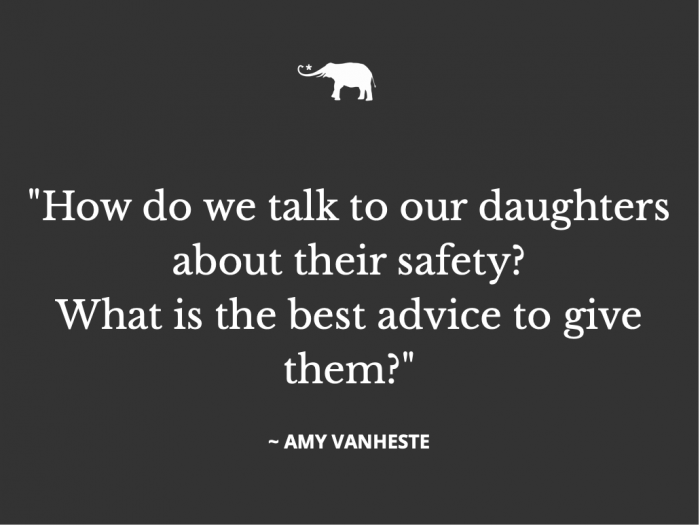The news and social media in the United Kingdom is swamped with story after story of women who have suffered at the hands of a man.
Woman after woman is named as a victim of assault, abduction, rape, or murder. And every time, the media reminds us what we women should be doing to keep ourselves safe.
Following the release of further details regarding Sarah Everard‘s kidnapping and murder by police officer, Wayne Couzens, women are being advised to check the identity of an officer if we are stopped by one. Looking at their warrant card is no longer enough, as this is how it is believed Wayne convinced Sarah to get into his car. It is recommended we ask to speak to the operator on the police radio, or call 999 to check that the officer is operating legitimately.
When I was a child, we were taught that if we ever got lost or needed help, we should seek out a police officer. Now what do we tell our children? Approach the police officer, but do not go with them—ask to speak to the operator on their radio?
I am worried about discussing this with my children; I do not want to create a mindset based on fear.
My friend shared a post about a 14-year-old girl who had been approached by two men in a car as she walked along a main road to meet her mother after school. These men vocally showed their appreciation for her figure—her 14-year-old girl in school uniform figure. This girl found the confidence to reply, “F*ck off you paedos,” and well done to her for doing so. But, it got me thinking; what if that had happened in a quiet lane, or when there wasn’t anyone else around? Responding directly as she did comes with the risk of retaliation.
So, how do we talk to our daughters about their safety? What is the best advice to give them? I worry that by overstressing the importance of this, we will create girls who are anxious when walking alone, alert for potential threats whilst in fight-or-flight mode. Whilst this can be a helpful state of mind should they actually be under imminent threat, it is extremely unhealthy if it kicks in every night when they’re walking home from school.
In my friend’s daughter’s class, every one of the 30 girls advised their teacher when asked, that they have been the recipient of unwanted and inappropriate comments from men whilst out without their parents. They are all 14 years old.
Of course, many of the comments and verbal abuse are thrown by men who have no intention of taking it further, however, those girls do not know that, and the discomfort and fear it triggers leaves an imprint in their minds.
As adult women, when we walk alone and a man is following us, we have no way of knowing what his intentions are. Our senses awaken, our heart rate quickens, and we kick into fight-or-flight mode. We can take control of that and manage it with common sense, and the precautions that we have all become accustomed to. We will prepare our keys in our hand, ready to use them as a weapon if necessary. We consider our surroundings and plan alternative routes and escape options. We might unzip our coat so that we can slip out of it, if it’s grabbed from behind, to run. We may call a friend or loved one telling them where we are and that someone is following us.
Are our daughters ready to learn all this?
My daughter knows to take her hair out of a ponytail before walking home so that it cannot be easily grabbed and her pulled backwards off her feet. She knows not to get in anyone’s car without my permission, to scream if she needs help, and to fight back if ultimately necessary. She even knows that if someone hurts her, if she can get that person’s DNA, the police will have a better chance of catching them.
But, how do we balance this knowledge with the fear that it might create? This is a struggle given the frequency that these stories appear in the news and on social media.
I have tried to reassure my daughter that it is extremely rare and therefore unlikely to happen to her. Statistically men are actually at far greater risk of violent assault or murder than women, and the majority of these crimes against women are by people known to them, not a stranger.
Whilst the government reviews policies and policing, and we campaign for safer streets, work together as a community to report perpetrators, stand up for anyone we see being victimised, and challenge inappropriate behaviour, we need our children to be aware of how to keep themselves as safe as possible.
The approach I chose was to ensure my children regardless of gender know how they can respond to a situation should they ever face it. They have an age-appropriate tool kit of ideas as to what to do in varying scenarios and some basics that they apply every day, such as taking their hair out of a ponytail, and carrying a mobile phone.
Should they have to? No—neither should we.












Read 6 comments and reply